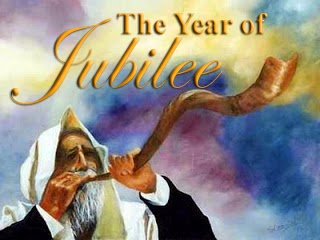The writing is on the wall!
Thousands of years ago, a Babylonian ruler named Belshazzar, confident in his own authority and power, dishonored God. In turn, the Lord judged the vice-regent swiftly and decisively. These observations serve as a sobering reminder that no one, regardless of their temporal authority and power, is beyond the reach of the Creator’s swift judicial verdict.
The Divine Intervention, Daniel 5:1–7
Daniel 5 spotlights a time in ancient history when Nabonidus (556–539 B.C.) was the king of Babylon, having succeeded Nebuchadnezzar II (605–562 B.C.). Between their reigns were a succession of would-be monarchs who either died young or were assassinated.
Previously, Nabonidus had served Nebuchadnezzar and had married one of his daughters. When the time was right, Nabonidus succeeded in seizing control of the throne.
Because the new king was deeply religious, he launched a campaign to restore the ancient temples of Babylon. Also, because of his interests and involvement in military campaigns, he spent long periods of time away from Babylon (especially at Teima).
In the king’s absence, his son, Belshazzar (about 553–539 B.C.) governed in his place. Belshazzar’s name means “Bel, protect the king!” As the second-in-command in the empire, the highest honor he could grant to a subordinate was to be the third most powerful ruler in the kingdom (Dan. 5:7).
In October of 539 B.C., while Nabonidus was away, Belshazzar prepared a lavish banquet (v. 1). The feast was attended by at least a thousand Babylonian officials. They drank wine with the viceroy, who likely sat at an elevated head table.
The timing of the event, though, was odd, for Babylon was under siege from Persian troops. The latter had already captured two nearby cities.
The enemy had also diverted the Euphrates River, which flowed into the capital. The Persians were preparing to conquer Babylon by sneaking into the city along the dried-up riverbed. Belshazzar could have been using the lavish feast to strengthen morale during the Persian siege.
The Aramaic word rendered “banquet” primarily referred to an event with much drinking of wine. Feasts of this size were not out of the ordinary in Daniel’s time.
Ancient historians describe royal banquets in which many more people attended. For instance, Alexander the Great was said to have hosted ten thousand at a wedding celebration (Esth. 1:3-8).
While Belshazzar was inebriated with wine, he ordered his officials to bring in the “gold and silver goblets” (Dan. 5:2) that Nebuchadnezzar had confiscated from the Jerusalem temple in 597 B.C., which would have been the eighth year of the latter’s reign. The Aramaic word translated “father” could mean that Belshazzar was a grandson or descendant of Nebuchadnezzar. The term can also be rendered “predecessor.”
Regardless of which of these views is preferred, it’s clear that Belshazzar planned to use the goblets for a sacrilegious purpose. He intended that he, his nobles, his wives, and his concubines would drink wine from the cups.
Using many different types of goblets was common at such feasts and symbolized great wealth. These goblets, however, had been made exclusively for the worship of Yahweh, the one true God of Israel. Of course, this fact did not matter to Belshazzar.
Once the goblets were retrieved from storage, the host and his guests drank from the chalices and praised their idols (v. 3). These powerless and lifeless objects had been made from “gold and silver” (v. 4), as well as “bronze, iron, wood and stone.” Perhaps the viceroy used these cups to toast the Babylonian idols as a way to show that his deities were mightier than all other entities, including the God of the Jewish exiles.
A divine response immediately came. The fingers of a human hand unexpectedly materialized and wrote on the plaster of the royal palace wall.
The inscription was near where Belshazzar was seated, opposite a “lampstand” (v. 5). Light produced by the fixture enabled the vice-regent to spot the writing, which he saw the back of the hand produce.
While Belshazzar could clearly see the letters, he could not decipher what they meant. The cryptic nature of the inscription, along with the eerie appearance of the hand, left the ruler so horrified that it drained all the color from his face.
The ruler was so alarmed that the joints of his hips gave way, making his legs weak. Also, his knees began knocking together (v. 6).
Belshazzar wanted to know the meaning of the inscription so badly that he summoned the “enchanters, astrologers, and diviners” (v. 7). Enchanters may have been those who practiced conjuring and divination, the art of foretelling the future by signs. Astrologers were probably priests or magi who maintained the traditions of Babylonian religion. Diviners, like enchanters, would interpret signs.
In Daniel’s day, these signs took various forms, including dreams or the casting of lots. Some diviners examined the patterns found in the organs of animals or the remains in a cup after liquid was poured out. The mention in verse 7 of all three distinct classes of Babylonian “wise men” emphasizes the inability of any of the viceroy’s advisers to interpret the mysterious inscription.
Belshazzar promised his palace officials rich rewards to anyone who could decipher for him the handwriting on the wall. He pledged to make the correct interpreter the “third highest ruler in the kingdom.”
This person would be clothed with a purple robe and have a gold chain placed around his neck. Since Belshazzar was his father’s second-in-command, this was the best Belshazzar could offer.
In that era, purple was regarded both as the color of royalty and as a sign of great wealth due to its expense. The color could be obtained from the secretion of certain shellfish. Necklaces were worn as a symbol of rank.
A chain made of gold formed Belshazzar’s necklace. Other necklaces of that day were made of beads or jewels.
The promised clothing and the necklace were symbols of the new authority given the person who would be appointed the third highest ranking official in Babylon, after King Nabonidus and his vice-regent, Belshazzar.
The Divine Pronouncement, Daniel 5:25–28
Previously, the wise men who served in the court of Nebuchadnezzar were unable to interpret his dreams (Dan. 2). Similarly, none of Belshazzar’s officials were able to decipher the cryptic handwriting that was inscribed on the plaster of the royal palace wall (5:8–9).
Finally, the queen mother (possibly the wife of either Nabonidus or Nebuchadnezzar) suggested that Daniel be summoned. The current situation reminded the queen mother of the elder statesman’s ability to interpret signs and dreams for Nebuchadnezzar (vv. 10, 17).
The biblical text does not explain why Belshazzar’s advisers were unable to make sense of the inscription. Several reasons have been proposed.
Some think the words were written vertically from left to right to form an anagram. Others say it was because the words were written in a language other than Babylonian.
In any case, Daniel had no difficulty reading and interpreting the message, which said the following (v. 25):
MENE, MENE, TEKEL, PARSIN
The Aramaic noun rendered “Mene” (v. 26) can mean either “numbered” or “mina,” the latter being a unit of money. Its linkage to the verb for “to number” is a play on words, rather than a strict etymology.
“Mene” was repeated twice for emphasis. According to Daniel, it meant that God’s allotted time for Belshazzar to reign over Babylon had run out.
“Tekel” (v. 27) can mean either “weighed” or “shekel.” The allusion to weighing reflects the way scales were used at that time in the marketplace.
Since scales were weighted with stones of varying sizes, it was important that all merchants use the same standard of weight. Dishonest merchants used weights that gave the customers the false impression they were obtaining more than was the actual case.
Daniel used “tekel” as a measurement of judgment. Specifically, Belshazzar had been weighed in comparison to the Lord’s true standards and had fallen short.
“Peres” (v. 28) can mean “divided,” “half mina,” or “half shekel.” Because the term is the singular form of the Aramaic word, “Parsin,” “peres” can also be a wordplay on the name “Persian.”
Undoubtedly, Daniel understood the word to be an allusion to the coming Persian victory. In short, the Babylonian kingdom of Nabonidus and Belshazzar would soon be divided between the conquering “Medes and Persians.”
Jewish tradition records that Belshazzar had read the prophecy of Jeremiah. The latter said the Jews would be in captivity for only 70 years.
Belshazzar counted the reign of himself and his father, Nabonidus, as 23 years. The king, Evil-Merodach, had reigned for two years, and Nebuchadnezzar himself had reigned 45 years.
Since the Jews were still in exile and it was the seventieth year of their captivity, Belshazzar calculated that the God of the Jews was not going to do anything. So, it seemed as if it was a good time to celebrate the triumph of himself and his pagan deities.
According to verse 29, Belshazzar gave Daniel the rewards that originally had been promised, even though the elder statesman had already said he did not want them (v. 17). He had rebuked the viceroy for ignoring Nebuchadnezzar’s example of humility (vv. 18–24).
That same night, the great city of Babylon fell to the Medes and Persians, just as Daniel had foretold. Belshazzar, the confident second-in-command who had dishonored the God of Israel, died along with his cherished but doomed Babylonian empire (vv. 30–31).
For thought and application
Because God is our Creator and Judge, He has the right to expect us to obey Him. Moreover, when we rebel against Him, He is fully just to punish us for our wrongdoing.
Thankfully, the Lord does not deal with us as we deserve. He treats us with kindness even when we often should experience His wrath and condemnation.
God is patient with us when we fall into sin. He perseveres in the hope that we will turn away from our wrongdoing and return to Him in faith and devotion. He is willing to take the time to move us away from the road of destruction and guide us into the path of life.
For instance, the Lord forbears with us when we deliberately mislead family members and friends. He is patient when we waste time at work or when we read material that is immoral. The grace of God is apparent even when we gossip about others and tarnish their reputation.
There are times when the Lord might choose to discipline us for some sinful area of our lives. God corrects us for our good and wants us to be holy (Heb. 12:10). His intent is to help us learn what is right and to avoid doing what is wrong.
We abuse God’s patience when we remain entrenched in sin. The more we persist in our wayward actions, the more we take His forbearance for granted. We make a mockery of His love by refusing to deal with our sinful tendencies.
As genuine followers of the Messiah, we are prudent to make every effort to abandon ungodly ways and remain unwavering in our devotion to the Lord. If we refuse to do so, we eventually might experience God’s severe displeasure (Heb. 10:26–27).
Our spiritual lives can be harmed when we interpret God’s patience as a license to sin. For example, we will not be as close in our relationship with the Lord as we ought to be. Our sensitivity to the Creator’s leading will be diminished and our fellowship with other believers will deteriorate.
The only way out of the preceding dilemma is to repent of the sin in our lives. Otherwise, when we consistently oppose God, like Belshazzar did, we are inviting consequences we do not wish to suffer for our disobedience.




